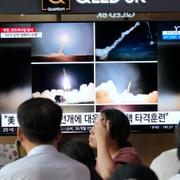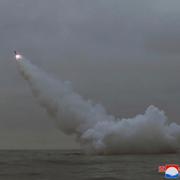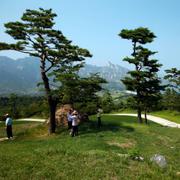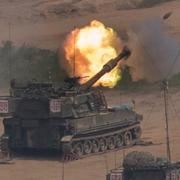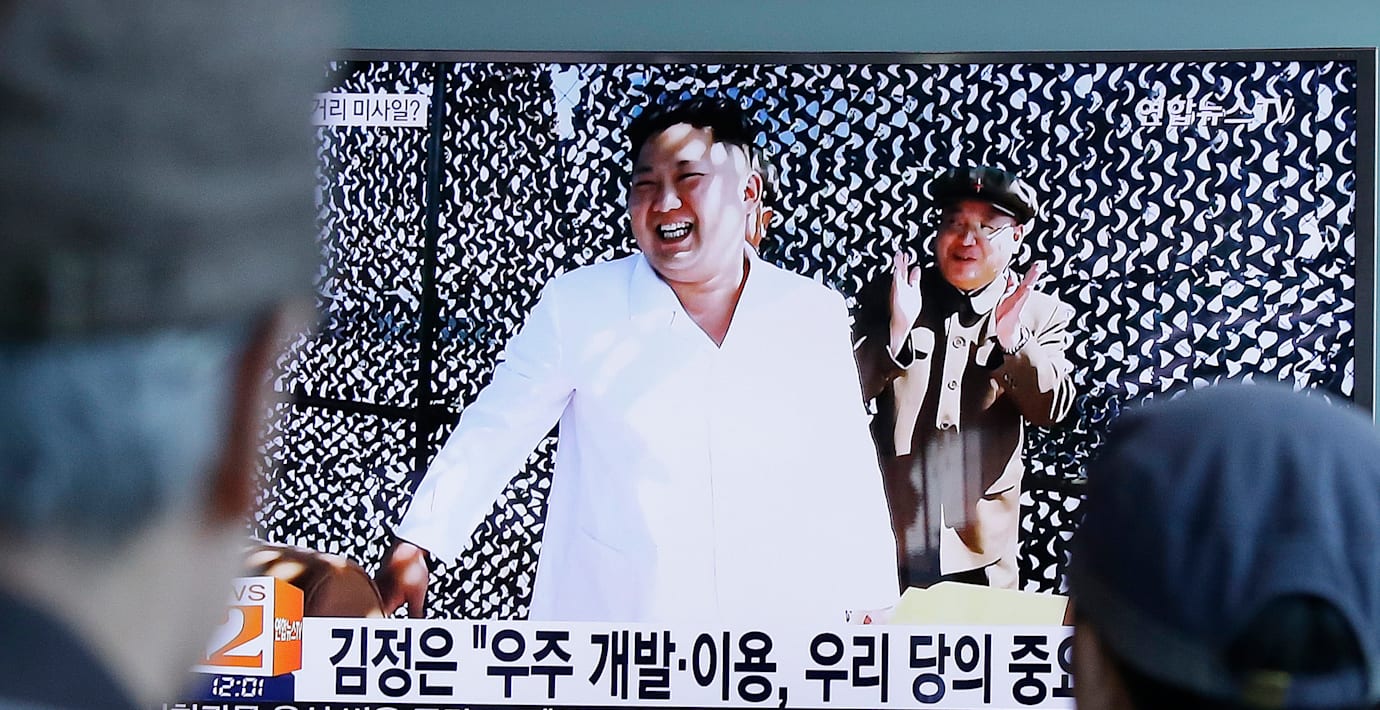
Kontroversiellt samarbete ska stoppa Nordkorea
Japan och Sydkorea har ingått ett kontroversiellt avtal för att dela försvarsunderrättelser angående Nordkorea, skriver TT. Oppositionspartiet och aktivister i Seoul protesterar mot samarbetet. I Sydkorea finns stor misstänksamhet mot Japan, ett resultat av landets kolonialstyre av Korea under perioden 1910–1945.
Alliansen anses vara nödvändigt för att hantera ”det växande militära hotet”, enligt Sydkoreas försvarsdepartement. Hittills i år har Nordkorea genomfört två kärnvapenprov och över 20 provskjutningar av robotar. Landet beskrivs vara ”redo att utföra ytterligare kärnvapenprov och robotuppskjutningar när som helst”.
bakgrund
Japans styre av Korea
Wikipedia (en)
Korea under Japanese rule began with the end of the Joseon dynastic monarchy in Korea in 1910 and ended at the conclusion of World War II in 1945. Japanese rule of Korea was the outcome of a process that began with the Japan–Korea Treaty of 1876, whereby a complex coalition of Meiji government, military, and business officials sought to integrate Korea both politically and economically into the Empire of Japan. A major stepping-stone towards Japanese occupation of Korea was the Japan–Korea Treaty of 1905, in which the then-Empire of Korea was declared a protectorate of Japan. The annexation of Korea by Japan was set up in the Japan–Korea Treaty of 1910, which was never actually signed by the Korean regent, Gojong.
Imperial Japanese rule over Korea ended in 1945, when American and Soviet forces liberated the peninsula. In 1965 the unequal treaties between Joseon-ruled Korea and Imperial Japan, especially those of 1905 and 1910, were declared "already null and void" at the time of their promulgation (i.e. "dead on arrival", implicitly a declaration of their illegality) by the Treaty on Basic Relations between Japan and South Korea.
Japanese administration of the Korean Peninsula was directed through the General Government. After the Japanese withdrawal from the Korean Peninsula followed by the Japanese surrender to Allied forces at the end of the Second World War, Korea returned to independence, albeit under two separate governments and economic systems backed (in the north) by the USSR and (in the south) by the United States.
The industrialization of the Korean Peninsula, begun by the Joseon dynasty (in particular by King, and later Emperor, Gojong) while Korea was still independent but vastly accelerated under Japanese occupation, continues to be the subject of controversy between the two Koreas and Japan. The manner of the acceleration of industrialization under Japanese occupation, especially utilization of industrialization only for the purposes of benefiting Japan, the exploitation of the Korean people in their own country, the marginalization of Korean history and culture, the environmental exploitation of the Korean Peninsula, and its alleged long-term negative repercussions for modern-day North and South Korea are among the most provocative aspects of controversy.
Omni är politiskt obundna och oberoende. Vi strävar efter att ge fler perspektiv på nyheterna. Har du frågor eller synpunkter kring vår rapportering? Kontakta redaktionen
